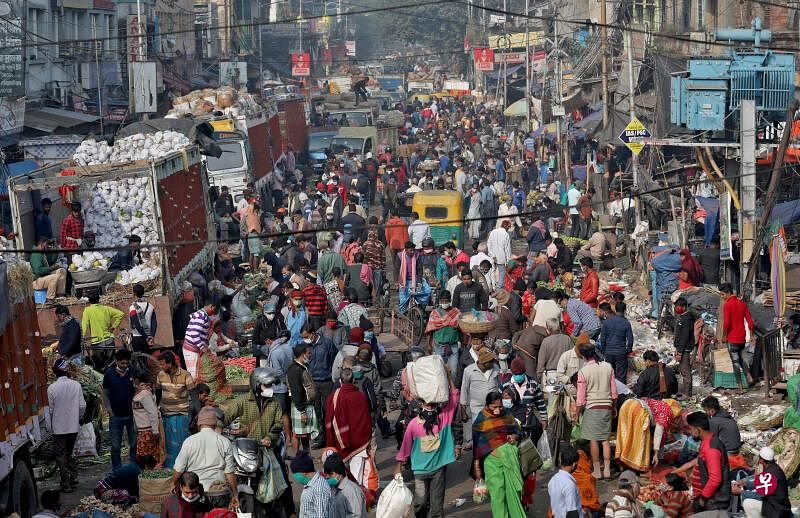
(United Nations Composite Television) By November 15 this year, the world's population is expected to reach 8 billion, and India will surpass China in 2023, becoming the country with the largest population in the world.The world's population growth rate in 2020 has dropped to less than 1%, and today's growth rate is the slowest since 1950.
The United Nations Ministry of Economic and Social Affairs issued a report on the World Population Prospects of the United Nations in the World Population Day on Monday (July 10). By 2030, the population of the world should reach 8.5 billion; by 2050, it will reach 9.7 billion;It reached a peak of about 10.4 billion and stabilized at this level before 2100.The 2019 report has predicted that India will surpass China in 2027 and become the country with the largest population in the world. However, the latest report shows that this may be achieved four years in advance.
The population growth of more than half of the next decades will be concentrated in the Eight Kingdoms
TheReport shows that although the net fertility rate of some developing countries has declined, the global population growth in the next decades is expected to be concentrated in eight countries, namely Congo, Egypt, Ethiopia, India, Nigeria, Pakistan, Pakistan, Pakistan, PakistanPhilippines and Tanzania.
46 countries with the least developed countries are the world's fastest growing countries, and the population of many countries is expected to double between 2022 and 2050.
Liu Zhenmin, deputy secretary -general of the United Nations, said: "The rapid population growth makes it more difficult to eliminate poverty, fight hunger and malnutrition, and expand the coverage of the health and education system.Sustainable development goals, especially goals related to health, education, and gender equality, will help reduce fertility and slow down the global population growth. "
The report said that East Asia and Southeast Asia, Central Asia and South Asia, Latin America and Caribbean, and Europe and North America may reach the peak of population before the arrival of 2100, and then declined.
By the end of this century, the population of Australia and New Zealand, North Africa and West Asia, and Oceania is expected to experience slow but positive growth.
Those who are over 65 or more worldwide account for 16%
The report said that the ratio of population 65 and over the world is expected to rise from 10%in 2022 to 16%in 2050.
TheReport pointed out: "The formulation and implementation of the relevant national policies of the population aging must cooperate with the increasing proportion of the elderly population, including ensuring social security and pension systems, as well as establishing a national healthcare and long -term care system"
The UN Secretary -General Gutres said that the milestone of the global population "reminds us of the common responsibility of caring for the earth, which is also the time to reflect on where we have not realized each other's commitment to each other."Mention specific details.
He pointed out: "This is a day to celebrate our diversity, recognize our common human nature, and admire the advancement of medicine to extend the life of human life and significantly reduce the mortality rate of pregnant women and children."




